Transmission
HIV is quite a difficult virus to transmit. Infection can only happen when infected bodily fluids come into contact with broken skin or mucous membrane (such as those in the rectum, penis or vagina). The bodily fluid needs to contain enough virus to be infectious. Those fluids are blood (including menstrual blood), semen, vaginal fluid, rectal fluids, and breast milk. There is not enough HIV in saliva, urine or tears for it to be infectious.
HIV is most commonly transmitted via unprotected sexual intercourse. Sharing needles when using drugs is also very risky. You can protect yourself from HIV by practicing safer sex and safer use .
The risk of HIV transmission is higher if there is a large amount of virus in the blood and bodily fluids. This is the case two to four weeks after an initial HIV infection, when the virus is replicating itself very rapidly.
The risk is much smaller when there is only a small amount of virus in the blood, for example when HIV therapy is preventing the virus from replicating.
No risk
There is very little virus present in spit, tears or urine. It is therefore not possible for the virus to be transmitted by these bodily fluids. Outside the body, the virus is only able to survive for a very short time and can be easily killed by normal hygiene procedures.
There is no danger of infection from:
- Kissing, shaking hands, hugging
- Being coughed or sneezed on
- Using the same plates, glasses and cutlery
- Using the same toilets, towels or bed sheets
- Visiting swimming pools or saunas
- Working or living with people with HIV/AIDS
- Caring for and nursing people with HIV/AIDS
- Administering first aid, as long as hygiene regulations are followed
- Medical and cosmetic treatments (dental, foot care etc.), as long as hygiene regulations are followed
- Tattooing and piercing, as long as this is done under hygienic conditions
- Insect bites
Risks from sex
HIV is most commonly transmitted via unprotected anal and vaginal sex. Semen, vaginal fluid and menstrual blood may contain much HIV. The mucous membranes of the rectum and vagina are very sensitive and can easily absorb the virus, as can the inner surface of the foreskin and the urethra.
As the mucous membranes of the vagina and rectum may contain much HIV, the “active” or penetrating partner is also at risk during vaginal and anal sex.
There is an HIV risk with oral sex (“blowjob”, “licking”), if semen or menstrual blood gets into the mouth. However, this risk is much lower than with anal or vaginal sex because the mucous membrane of the mouth is much more resistant to HIV than other mucosas. When ingesting vaginal fluid which does not contain blood, the amount of virus is too small for an infection. Also, when ingesting pre-cum, HIV is nearly impossible to transmit.
Other sexually transmitted infections increase the HIV risk: inflamed mucous membranes make it easier for HIV to get into the body or to get out of it.
Safer Sex offers very good protection against HIV during sex.
Risks when using drugs
Sharing needles when using drugs carries a very high risk of infection. In this way, HIV can enter the bloodstream directly. The virus can survive for several days in traces of blood inside the syringe. In addition, it is very easy to become infected with hepatitis by sharing needles and other devices.
Safer use offers very good protection from HIV when using drugs.
Mother–to-child transmission
HIV-positive women can transmit HIV to their children during pregnancy, childbirth or when breastfeeding. Nowadays, however, this risk can be almost entirely eliminated using medication and taking other measures. For that reason, pregnant women in Germany are offered an HIV test automatically. You can find more information about this here.
Particular risks
Not every instance of unprotected anal or vaginal intercourse between an HIV-positive and HIV-negative partner automatically leads to HIV transmission. The risk of infection increases the more you have unprotected sex.
This can be compared to driving a car: the more often you drive, the higher your chance of being involved in an accident.
In addition, men who have sex with men have a particularly high chance of infection, as HIV is widespread among this section of the population in Germany. This increases the probability of having sex with an HIV-positive partner and thus the chance that the virus is transmitted.
In other parts of the world, HIV and AIDS primarily affect heterosexual people, such as in southern Africa and Southeast Asia. For this reason, German sex tourists in these places are also at a particularly high risk of infection.
Share on




